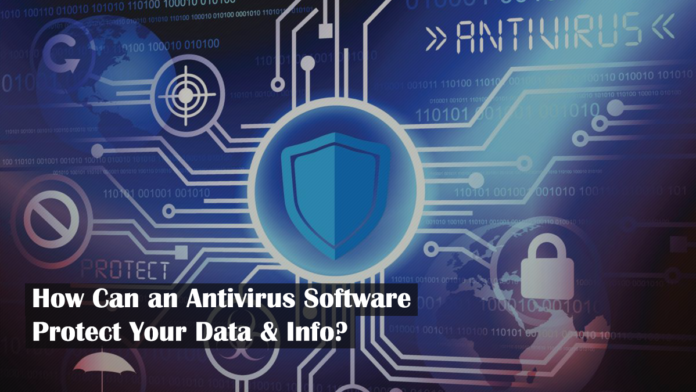
Antiviruses and Viruses
Viruses are malicious software programs designed to give you a lot of trouble or destroy your computer. When it is said, destroy, it is literally so. Think so because the loss of data from your long-term business or personal photos, documents has no price. And unfortunately, all that is stored today on electronic magnetic media is very important. You can buy another computer in the worst option, but you can never buy the data. That is why the only solution that saves you – regular data backup! This does not mean that you do not need all methods to protect yourself, but regular data backup and storage of data in at least two different places would be a useful solution. Let’s say you save data on an external hard drive or USB flash drive and an online drive. Let’s say it’s a solution so that you don’t have a lot of headaches about data. Let’s face it, nothing guarantees 100% security, but this is a good way to data security. All this takes a lot of time, so if the data is dear to you, start from the dead point and do at least some of the above.
How do modern computer viruses work?
Their essence is destroying your data or disabling the hardware, which in turn leads to data loss. The computer has several components, most of them will always survive a virus attack, but first, the operating system suffers, and then slowly or quickly everything depends on the virus and all your data.
There are several reasons for the essence of a virtual attack on your computer. One of the main reasons is financial. A certain virus attacks your computer, I first wrote about a certain one because each virus has its purpose. Other viruses are intended to destroy the operating system, load the hardware, and long-term action can lead to failure.

Antivirus & Anti-Malware Software
The first step in protecting your privacy online is to put in good antivirus software. Good antivirus software will disable most varieties of malware and stop hackers from infecting your device with spyware or keyloggers. Anti-malware software will function as a further layer of protection just in case the antivirus fails to acknowledge the malicious file.
When it involves compromising your system and accessing your sensitive information, bad people want to urge you to still use a Mac account as a Windows user. Mac users have to defend themselves against malware, and there are several solutions available that serve this need.
Antivirus for Mac features includes real-time virus protection with the power to perform a full system virus scan, a fast scan of critical system areas, also as a scheduled scan. It also offers useful features like plug-ins for popular web browsers which will help warn you to question pages in search results and also the risk of crashes.
It has a decent record for detecting and preventing viruses and other malware styles, which may help keep your system malware-free. But not only does it detect and stop malware designed for Macs – but it also detects and stops malware targeted at Windows. Why is this important for Mac users? If you are a Mac user who also incorporates a Windows system or lives with someone who works, it prevents Windows malware from spreading and spreading to other Windows machines around you. It is crucial that you simply update your systems regularly, as software developers remove any potential vulnerabilities in their software by releasing updates. If you do not update your software, you permit the door open for hackers and therefore the risk of a falling victim is higher.
Bank account and credit cards – daily payment check
It’s important to stay on track with your daily balance. Many banks have the choice of enabling alerts to notify you of any activity in your account. So, whether or not you get it yourself, you may learn about the reduction of your funds. This suggests that once you receive such a message unexpectedly, there’s a high probability that your account is compromised. If this is often the case, you need to take immediate action.
Also, make sure you know all the guidelines that apply to the financial institutions you use, so when something happens, you know what to do.
Unfortunately, you now know that identity theft is a real threat and that there is a real chance that you will become a victim of online theft – especially if you do not take any precautions.
What is online identity theft?
Internet identity theft is a serious crime, often aimed at obtaining another person’s personal or financial information. The information obtained is then used for personal gain, often by buying or selling someone’s identities or credit card information online to most providers.
Where the premodern way of identity theft typically occurred when people went through trash cans, looking for information or old bank statements, the modern way of identity theft happens online.
Hackers use various methods to access companies or databases on a website and infect or hack someone’s device to obtain sensitive information.
High-tech identity theft is a type of theft that is on the rise. In such cases, thieves use technology to obtain people’s data and use it for fraudulent activities.
This type of identity theft is most commonly used by hackers who exploit vulnerabilities on hard drives and computers. They usually break into computer networks and install malware that allows them to access public records and personal information.

Financial identity theft refers to a situation in which a person’s identity or personal data is misused to obtain money, products, or other benefits.
Usually, the purpose of stealing financial information is to make transactions or make purchases using someone else’s money. Theft of financial identity is the most common type of identity theft.
First and foremost, it’s important to be smart while using the Internet – don’t just blindly enter personal information or payment details on any given website.
While online identity theft continues to increase, you can protect and prevent scammers from affecting your life by becoming more aware of their methods and learning how to protect yourself from them.
For now, try to defend yourself better, read on to keep up to date with the latest security news, issues, tools, and tips.




























